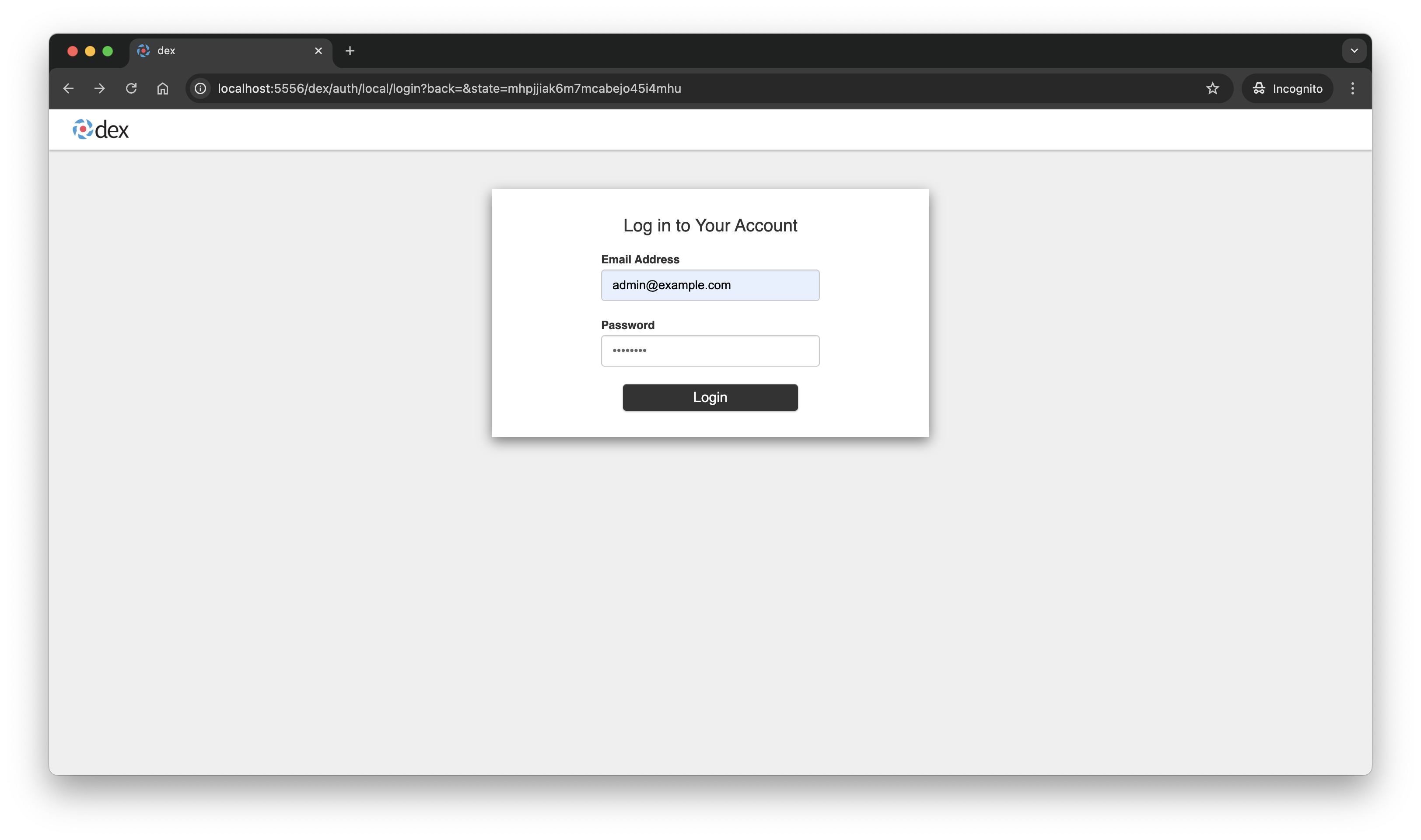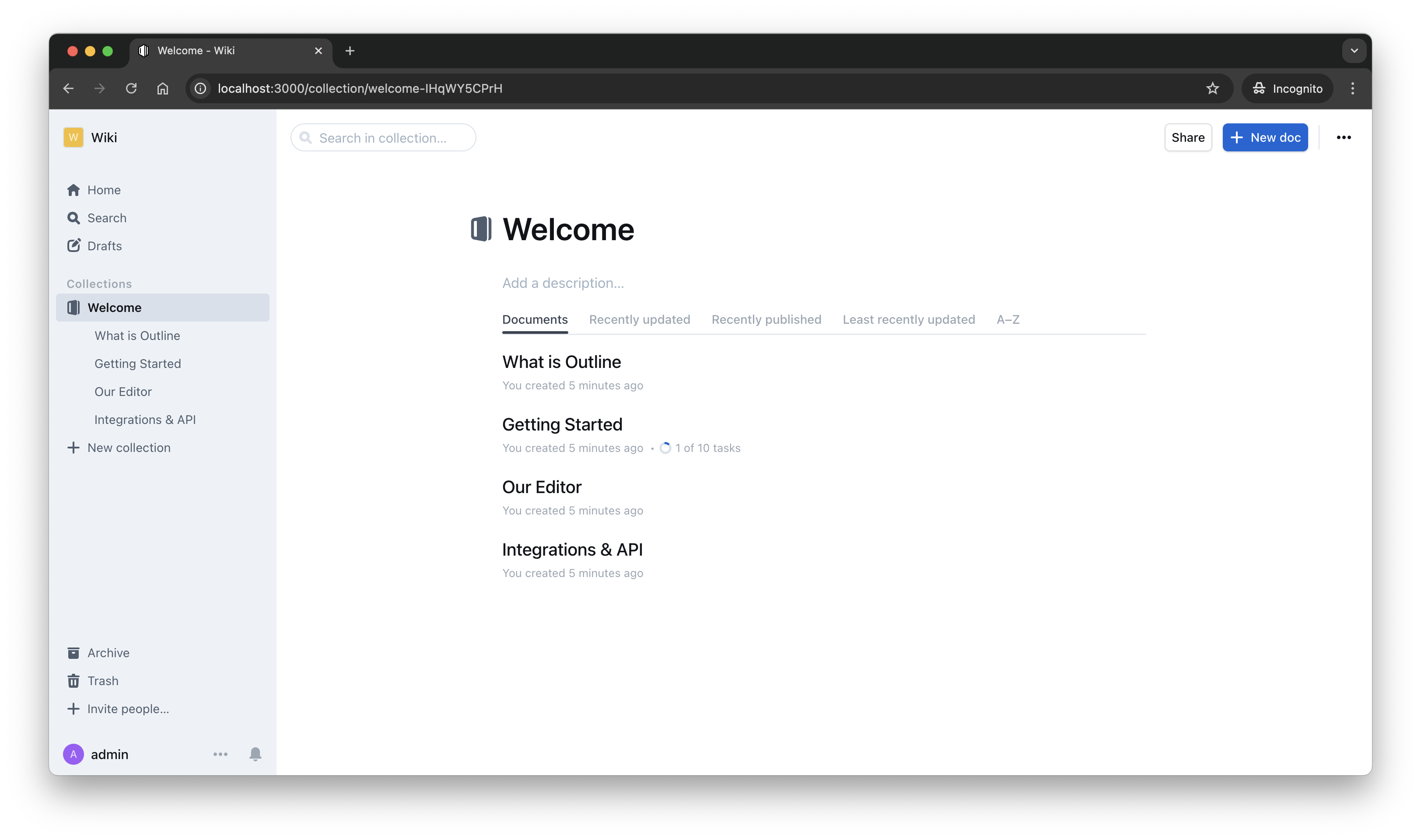Self Hosting Outline Wiki
I recently discovered Outline a collaborative knowledge base. I wanted to self-host it on my server, but the mandatory auth provider requirement was off-putting. My server is on a private encrypted network (Tailscale) that only my approved devices in the tailnet can access, so I don’t really need authentication for my personal single-use apps. I found a few guides using Authelia/Keycloak, but these are heavy-duty applications that would consume a lot of resources (DBs, caches, proxies, and whatnot) just to have an OIDC provider for Outline.
There had to be a simpler way, right? Enter Dex. As recommended by my friend and colleague Chinmay, it turned out to be quite easy.
Here’s the full docker-compose.yml setup you need to get Outline up and running on your local instance!
services:
outline:
image: docker.getoutline.com/outlinewiki/outline:latest
env_file: ./docker.env
ports:
- "3000:3000"
volumes:
- storage-data:/var/lib/outline/data
depends_on:
- postgres
- redis
environment:
PGSSLMODE: disable
redis:
image: redis
env_file: ./docker.env
ports:
- "6379:6379"
healthcheck:
test: [ "CMD", "redis-cli", "ping" ]
interval: 10s
timeout: 30s
retries: 3
postgres:
image: postgres
env_file: ./docker.env
ports:
- "5432:5432"
volumes:
- database-data:/var/lib/postgresql/data
healthcheck:
test: [ "CMD", "pg_isready", "-d", "outline", "-U", "user" ]
interval: 30s
timeout: 20s
retries: 3
environment:
POSTGRES_USER: 'user'
POSTGRES_PASSWORD: 'pass'
POSTGRES_DB: 'outline'
dex:
image: dexidp/dex:v2.35.3
ports:
- "5556:5556"
volumes:
- ./dex:/etc/dex
command: [ "dex", "serve", "/etc/dex/config.yaml" ]
volumes:
storage-data:
database-data:
You’ll need to add the following env variables as well
NODE_ENV=production
SECRET_KEY=your-key
UTILS_SECRET=your-key
DATABASE_URL=postgres://user:pass@postgres:5432/outline
PGSSLMODE=disable
REDIS_URL=redis://redis:6379
URL=http://localhost:3000
PORT=3000
FILE_STORAGE=local
FILE_STORAGE_LOCAL_ROOT_DIR=/var/lib/outline/data
FILE_STORAGE_UPLOAD_MAX_SIZE=262144000
OIDC_CLIENT_ID=outline
OIDC_CLIENT_SECRET=outline-secret
OIDC_AUTH_URI=http://localhost:5556/dex/auth
OIDC_TOKEN_URI=http://dex:5556/dex/token
OIDC_USERINFO_URI=http://dex:5556/dex/userinfo
OIDC_USERNAME_CLAIM=preferred_username
OIDC_DISPLAY_NAME=Dex
OIDC_SCOPES=openid profile email
FORCE_HTTPS=false
ENABLE_UPDATES=true
WEB_CONCURRENCY=1
DEBUG=http
LOG_LEVEL=infoAnd finally, to configure Dex, we need the following config:
issuer: http://localhost:5556/dex
storage:
type: sqlite3
config:
file: /var/dex/dex.db
web:
http: 0.0.0.0:5556
staticClients:
- id: outline
redirectURIs:
- "http://localhost:3000/auth/oidc.callback"
name: "Outline"
secret: outline-secret
oauth2:
skipApprovalScreen: true
enablePasswordDB: true
staticPasswords:
- email: "[email protected]"
hash: "$2a$10$2b2cU8CPhOTaGrs1HRQuAueS7JTT5ZHsHSzYiFPm1leZck7Mc8T4W"
username: "admin"
userID: "08a8684b-db88-4b73-90a9-3cd1661f5466"Voilà! With docker compose up, you’ll have an Outline server ready to go. You can log in using the admin user.

